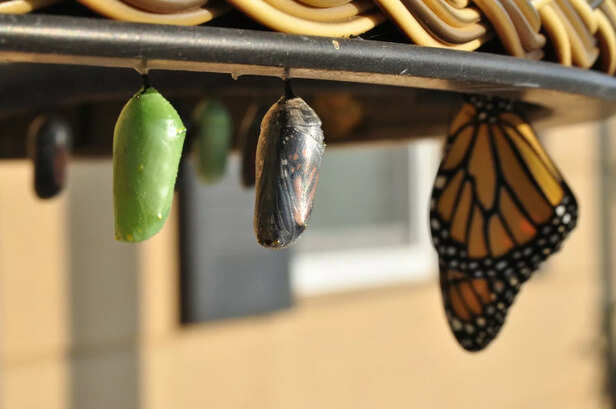Why the Gita Says Helping Everyone Creates More Suffering
Riya Kumari | Oct 01, 2025, 15:12 IST
Shri Krishna ji
( Image credit : AI )
Okay, let’s talk about that thing you swear is your “good heart” but is secretly just emotional masochism with lipstick: the chronic need to help everyone. Yes, you, jumping in to fix, save, support, advise, uplift, sponsor, babysit, and occasionally resuscitate the entire planet like you’re auditioning for the role of “Discount Krishna, Now With 30% More Martyrdom.”
We all like to think that helping everyone is the mark of a good person. We offer advice, take on responsibilities, and sometimes sacrifice our own comfort for others. But the Bhagavad Gita, one of the most enduring guides to life and action, has a different perspective. It doesn’t tell us to stop caring, it tells us to act wisely. Helping everyone indiscriminately can actually create more suffering, both for ourselves and for those we try to save. The wisdom here is subtle but powerful: real compassion includes discernment. Not every problem is yours to fix, and not every struggle should be solved by someone else.

When we constantly put others first, we neglect our own duties and growth. The Gita emphasizes dharma, doing what is right for you and fulfilling your responsibilities. Carrying everyone else’s burdens may seem noble, but it can drain your energy, cloud your judgment, and prevent you from fulfilling your own purpose.
You cannot pour from an empty cup. Taking care of yourself is not selfish, it’s necessary.

When you step in to solve someone else’s problems, you may actually prevent them from learning and growing. The Gita reminds us that everyone has their own karma to experience. Struggling, failing, and finding their way is how others learn resilience. Constant interference, even with good intentions, can create dependency and prevent growth.
True help empowers rather than enables.

It’s easy to assume that if you help, everyone will appreciate it. Reality? Not always. People may resist, misunderstand, or misuse your efforts. The Gita advises clear intention and mindful action. Help when it aligns with your dharma, and step back when it doesn’t. Boundaries are not cruelty, they are clarity.
Setting limits protects your energy and maintains healthy relationships.

The Gita teaches that action without attachment and discernment is key. Helping everyone indiscriminately often comes from attachment, wanting approval, feeling guilty, or needing to feel indispensable. Acting wisely means evaluating where your effort has real impact, and where it is simply satisfying your ego.
Act with focus, not obligation. Your actions matter more when chosen thoughtfully.

Finally, the Gita shows that self-respect and compassion are not opposites. Helping others is noble, but only when balanced with responsibility to oneself. Choosing not to intervene in situations beyond your control is not cruelty, it’s respecting the natural order of life and the growth of others.
Balance empathy with wisdom. Helping wisely reduces suffering for everyone.
Final Thought
The next time you feel the urge to rescue someone, pause. Ask yourself: Am I helping them, or am I avoiding my own life? Am I empowering, or am I creating dependence? The Gita reminds us that real wisdom lies in action that respects both yourself and others. Helping everyone indiscriminately may feel virtuous, but true compassion understands limits, allows growth, and ultimately reduces suffering, for everyone involved.
1. Helping Everyone Can Overwhelm Your Own Life

Help
( Image credit : Unsplash )
When we constantly put others first, we neglect our own duties and growth. The Gita emphasizes dharma, doing what is right for you and fulfilling your responsibilities. Carrying everyone else’s burdens may seem noble, but it can drain your energy, cloud your judgment, and prevent you from fulfilling your own purpose.
You cannot pour from an empty cup. Taking care of yourself is not selfish, it’s necessary.
2. Unsolicited Help Can Hinder Others

Transformation
( Image credit : Unsplash )
When you step in to solve someone else’s problems, you may actually prevent them from learning and growing. The Gita reminds us that everyone has their own karma to experience. Struggling, failing, and finding their way is how others learn resilience. Constant interference, even with good intentions, can create dependency and prevent growth.
True help empowers rather than enables.
3. Helping Without Boundaries Leads to Confusion and Conflict

Boundary
( Image credit : Unsplash )
It’s easy to assume that if you help, everyone will appreciate it. Reality? Not always. People may resist, misunderstand, or misuse your efforts. The Gita advises clear intention and mindful action. Help when it aligns with your dharma, and step back when it doesn’t. Boundaries are not cruelty, they are clarity.
Setting limits protects your energy and maintains healthy relationships.
4. Wisdom Lies in Discerning Where Action Matters Most

Present moment
( Image credit : Unsplash )
The Gita teaches that action without attachment and discernment is key. Helping everyone indiscriminately often comes from attachment, wanting approval, feeling guilty, or needing to feel indispensable. Acting wisely means evaluating where your effort has real impact, and where it is simply satisfying your ego.
Act with focus, not obligation. Your actions matter more when chosen thoughtfully.
5. Compassion and Self-Respect Can Coexist

Limit
( Image credit : Unsplash )
Finally, the Gita shows that self-respect and compassion are not opposites. Helping others is noble, but only when balanced with responsibility to oneself. Choosing not to intervene in situations beyond your control is not cruelty, it’s respecting the natural order of life and the growth of others.
Balance empathy with wisdom. Helping wisely reduces suffering for everyone.
